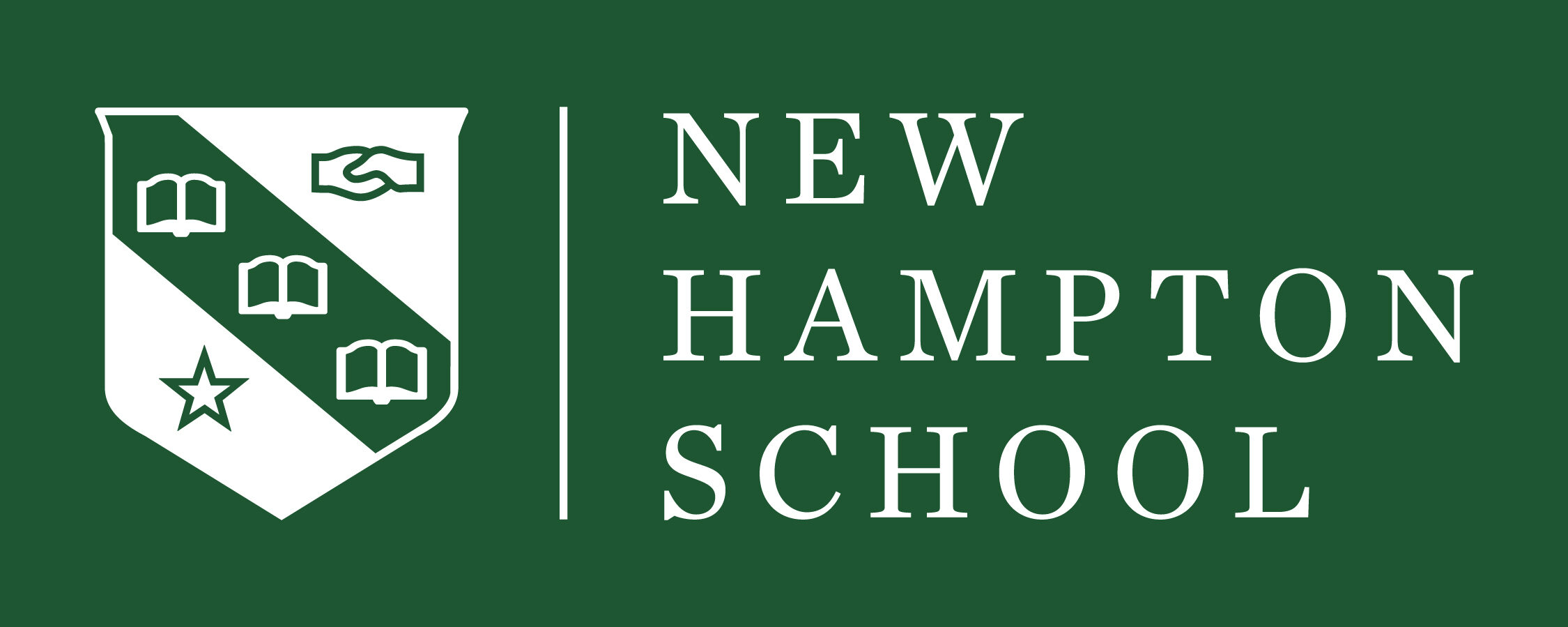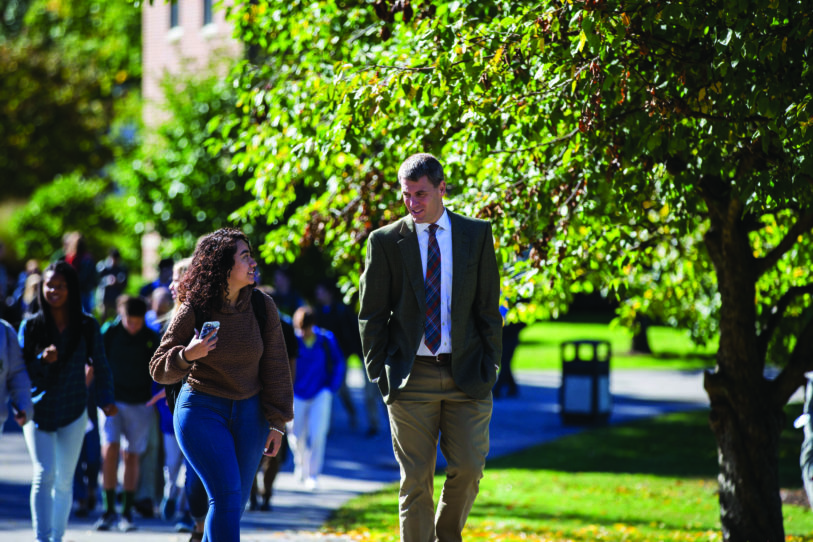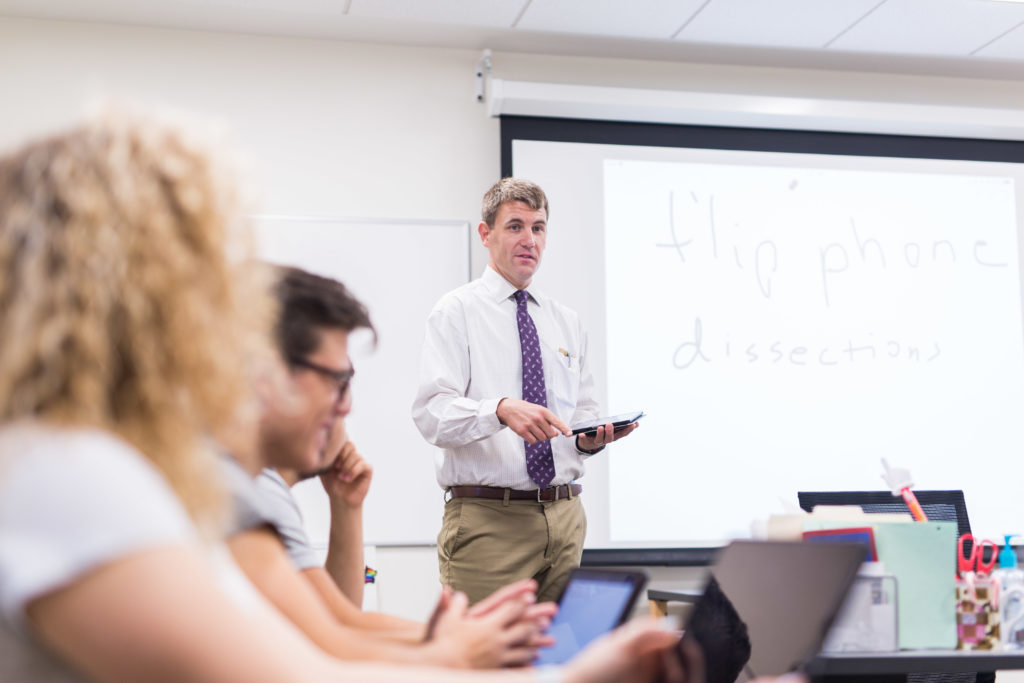This article was first published in the 2018 issue of Hamptonia.
Now in his 10th year of teaching, Jonathan Schwab arrived at New Hampton School six years ago as a history teacher. Initially new to boarding schools, he quickly grew to appreciate the opportunities to connect with students in and out of the classroom that are found in a residential environment. During his time on campus, Jonathan has worked as a history teacher, soccer coach, house head, and now as the Director of Experiential Learning. In the past two years, Mr. Schwab has led an effort to implement more project based learning into the curriculum, in addition to coordinating Project Week and Service Learning programs for the whole school. Jonathan lives in Moore House with his wife Mary and their three children. Together, they enjoy the benefits of living in New Hampton School’s diverse community and also taking advantage of our school’s exceptional geographic location.
How did your teaching career begin?
I remember having a positive high school experience in a small, independent school. I was inspired by one good teacher in particular who cared about what we were doing in and out of the classroom. I went to college and kind of serendipitously went on to grad school because Mary, my college sweetheart and now my wife, was going to go to grad school in Vermont, and I thought “that’s a good idea.” I decided I’d pursue teaching after that.
What drew you toward experiential education?
I think it started with my own, relatively traditional, high school experience. I was an athlete, and when my family moved from Kansas City to Pennsylvania, my new school didn’t have the sport I wanted to play so I signed up for the outdoor club. We tried kayaking and whitewater canoeing and other activities. I learned more there than I did in the classroom. The experiences were lasting memories. It ties in with the residential program at boarding school where the school day extends beyond 70-minute classes. Learning is everywhere and these are powerful experiences.
How do you see Project Week evolving in the future?
Project Week is permeating other areas of the school. My first year here, it was very much a singular experience. Now, the community talks about Project Week throughout the year, not just in March. For example, students take ideas they are learning about in class and propose digging into them during Project Week. The opportunities for project-based learning are endless. What connections have emerged from Project Week? We have seen partnerships with alumni and other organizations emerge from Project Week. Connections that began during project week are extending to offer additional opportunities for our students such as a summer internship or a year-long service project.
How do you see experiential education changing the education landscape today?
I’m reading a book right now called What School Could Be by Ted Dintersmith. I’m really interested in the idea that education should be more focused on student outcomes and not student results, and what matters more than test scores is what a student can actually do. A student should be able to use experiential learning as a way to explore what they’re interested in and then see if they can use it to inform what they do next. To me, it’s less about the materials that people have to work with and more about the outcomes.
What do you love about New Hampton School?
I love the unapologetic, unpretentious nature of our school. We’re really serious about what we do, but there’s an openness and comfort in our day to day that I don’t see at many schools. What I like most about working here is that we go full steam ahead with new initiatives. So much of education is entrenched in schools. We have a solid history and foundation, but I like that we’ve got a little bit of a fighter’s edge to us.
What do you like about living in New Hampshire outside of school?
I became acquainted with New England during college and stayed for grad school. I like that people look out for each other around campus and around town. I like the changing seasons and that people will play outdoors even if it’s negative 20 or 95 degrees. We live in beautiful rural New Hampshire, but with the benefit of a cosmopolitan student body. For example, my kids hear people speaking different languages in the dining hall and in the dorm.





